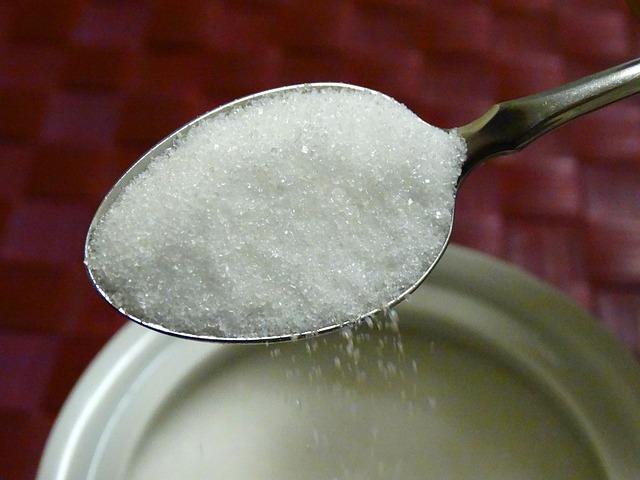The story of sugar

Sugar is a food people eat all over the world. About 170 million tonnes of it is produced each year. The average person eats about 24 kilograms of sugar a year, but in developed countries that number rises to 33 kilograms per person. It is used as a sweetener in all kinds of food from candy to salad dressing. The story of sugar starts in India and New Guinea 8000 years ago. A tall grass called sugar cane grew in these areas, and people chewed it for it’s sweet taste. In the 6th century BCE, the Persians discovered sugar cane when they invaded India. The Persians called it “honey without bees.” From Persia the food spread to Greece. In India by the 5th century CE, a method was discovered to extract the sugar from the cane juice, so shipping it for trade became a lot easier. In the early 7th century, envoys from India taught the Emperor of China how to cultivate sugar cane, and he established the first sugar cane plantation in China. Sugar production was still very low, so it remained expensive and uncommon until the 18th century. It was so expensive that it was called “white gold.” In the West Indies and other locations in the Americas, sugar plantations were established, and slaves were brought in, mostly from Africa, to cultivate the crop. Sugar became plentiful and cheap enough for common people to enjoy it. In the 19th century in the cooler climates of Europe, sugar beets provided most of the sugar people there needed. Today this crop provides about 20% of the world’s production of sugar. The world’s sugar mainly comes from the sugar cane, which is the world’s largest crop, providing 80% of the sugar we use today.
Click on the audio recording below to hear the lesson.
Vocabulary:
tonnes: 1000 kilos
developed: rich
rises: goes up, increases
sweetener: something that makes things sweet
salad dressing: a sauce you put on salad to add flavor
chewed: ate with their teeth
BCE: Before Common Era, before the year 1
Persians: people who lived in Persia, which is modern Iran
invaded: came in with an army
CE: Common Era, after the year 1
method: a way to do something
extract: get something out of something
shipping: moving by ship or other method
trade: exchanging goods rather than using money to buy them
envoys: people sent by the government to another country
cultivate: grow and take care of
established: made for the first time
plantation: farm
remained: continued to be
slaves: people who belong to other people and work for no money
crop: plants that are grown for food
plentiful: a lot
climates: weather
provided: supplied people with
production: supply
mainly: mostly
Pronunciation Exercise: Listen and repeat the above vocabulary on the audio file below.
© 2014 Ambien Malecot